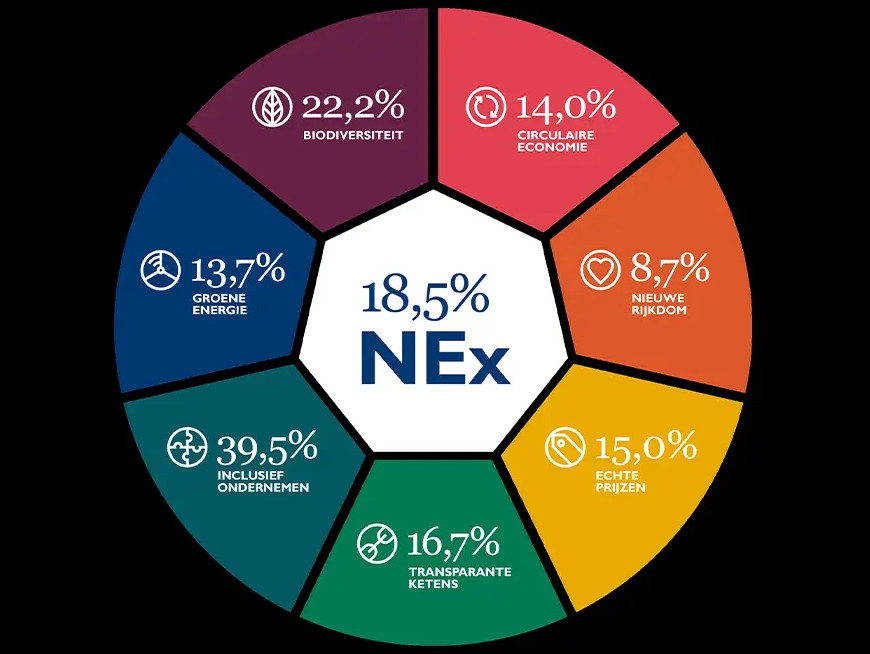
The transition to a more sustainable Dutch economy is progressing slowly. According to the sixth edition of the Nieuwe Economie Index (NEx), 18.5% of the economy is sustainable, an increase of only 1 percentage point compared to 2024. “The NEx shows that a breakthrough in the circular economy and biodiversity will not happen as long as legislation is designed to serve the interests of traditional businesses,” says Ankie van Wersch, executive director of MVO Nederland.
The growth of the NEx is stagnating partly due to a decline in the areas of biodiversity and new wealth. For biodiversity, MVO Nederland points to the deterioration of freshwater quality and an increase in nitrogen surplus. Van Wersch emphasizes: “We know that investing in nature pays off. Yet, there is little political attention for the economic opportunities that biodiversity presents.”
The circular economy has been stuck between 13% and 14% for six consecutive years. “The circular economy isn’t scaling up because it’s still more financially attractive to use new raw materials than to recycle old ones,” says Van Wersch. She highlights that many plastic recycling companies are going bankrupt because new plastic from China is cheaper. Without supportive policies, achieving the target of a 50% circular economy by 2030 will be difficult.
There is positive news regarding transparent supply chains, which have seen an increase of 3.7 percentage points. This improvement is a result of regulations such as the CSRD and CSDDD, which require companies to provide more insight into their supply chains.
“Our message to this cabinet is to listen to companies that are demonstrating that business within the boundaries of nature and society is entirely possible,” concludes Van Wersch. According to her, the upcoming budget plans offer an excellent opportunity to steer policy in this direction.
Source: MVO Nederland